Tips to Help Overcome Fears of Full-Time RV Living
Few topics hold my attention better than fear.
For years, watching my own fears and working to understand them has been an addictive hobby of sorts. Watching their impact on my decisions and the resulting shape of my world has actually been a central part of my personal growth.
Full-time RV living fostered some of the most disabling fears I have experienced.
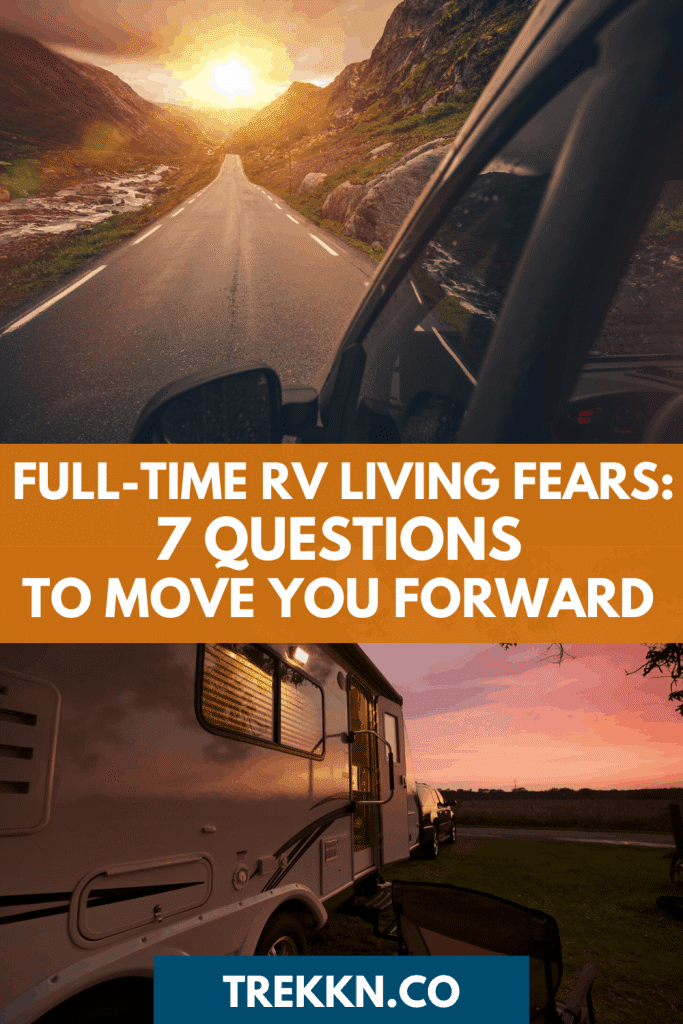
That’s right, at no point have my fears been on full display more than when my family moved in the direction of full-time RVing. In fact, those weeks of preparation were one big “fear fest.”
I would like to say I was able to use the framework I am about to share with you to move through that phase of my life wisely and gracefully. But that would be a lie.
No, the only thing that pulled me through the fear of that phase, which reduced me pretty much to nodding and pointing for a couple of days, was the patience and gentle questions from my wife.
God bless her.
I hope you have someone that can help you through a similar phase of your life. At the same time, I don’t want you to have to depend on someone else to process that fear; that step is just too important.
There is a better way to process that fear of full-time RVing, on your own, and I want to share it with you.
Self-Reflect to Shift Fears of RV Life
I want you to know ahead of time that neither fear nor the question of full-time RV living are new topics on Trekkn.
Rather, it has been a common topic since we started sharing our experience with you:
- Is Full-Time RV Living Right for YOU?
- The Top 5 Fears Full-Time RVers Face Before Hitting the Road
- 5 Fears That Almost Kept Us From Living the Full-Time RV Life
- Is RV Living Worth It? A Look Back On 17 Months of Full-Time Travel
- Life After Full-Time RVing: The Financial Reality of Selling Our Truck and Trailer
Let’s get back to the main point, which is processing the fear(s) that may stand between you and a life out on the open road. That’s why we’re all here, right?
Fear-Setting: A Priceless Practice for Evaluating Options
So I know this guy…okay I don’t actually know him. But I’ve been following him online and reading his books for more than a decade.
His name is Tim Ferriss. If you’re interested in any topic around personal development, I highly suggest you check out his blog and podcast.
You may not agree with every perspective he shares, but I am confident you will find his advice offers great value that can help move you forward.
Fear-setting is a practice that I discovered thanks to Tim. He exercises fear-setting practice multiple times throughout the year to direct and guide his life. The methodology is covered in full detail in his book Tools of Titans. I highly recommended it as it also offers countless other pieces of wisdom and advice.
APPLY FEAR-SETTING TO RV LIVING
Today my goal is to help you walk through the fear-setting practice applied directly to the possibility of choosing the full-time RV life.
I think you will find ideas are enlightening whether it points you toward a full-time RV living, or away from this lifestyle.
Let’s get into the nuts and bolts. The foundation is based on deep-thinking questions that force you to confront your fear directly, honestly and in a more objective way.
The questions below spring directly from the advice Tim offers in his book and podcast. I have simply focused them on the scenario of full-time RV living. I take no credit for coming up with the underlying basis of these questions.
If you have some apprehension, hesitation, or full-blown fear of an RV-lifestyle, consider this personal Q&A. Block an afternoon for yourself. Find a quiet, comfortable spot and ask yourself the following questions.
Question 1: What is the absolute worst that could happen if I choose the full-time RV life?
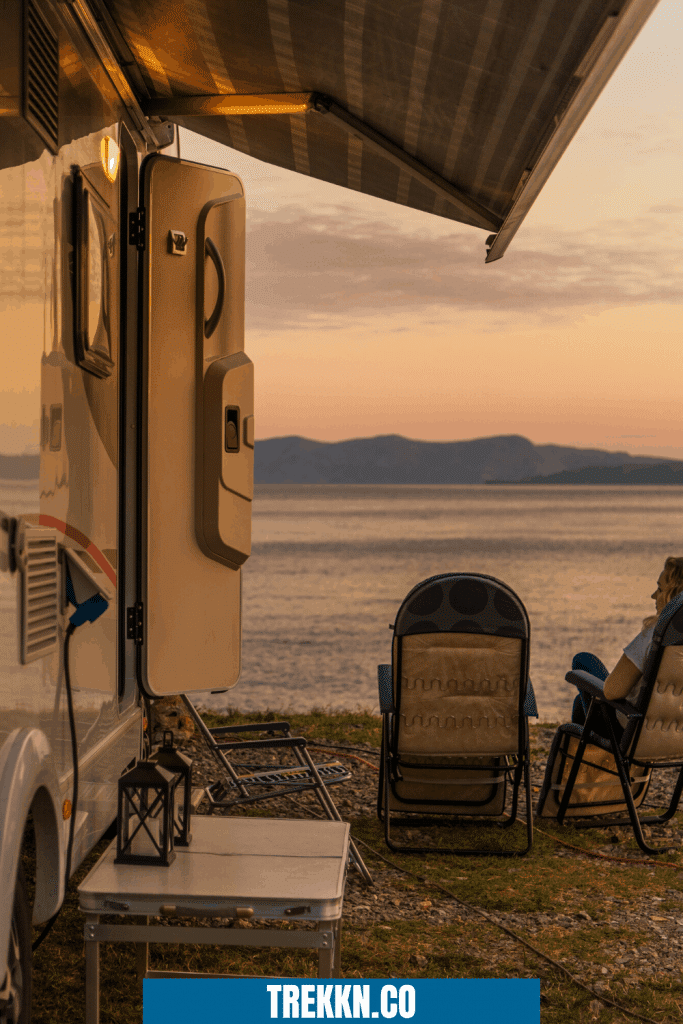
Another way to phrase this one is to ask “What is a nightmare scenario if I start RVing full time?”
This seems like a logical place to start, right? Let’s put a face on the nebulous fear that can become all consuming. You may have been thinking about if for weeks, or maybe even months or years.
While it may be not be a common start, it is logical. For some reason, many of us struggle to even adequately define the fear that is paralyzing us.
The fear arises in large part from the simple fact that full-time RVing is not “normal”, it’s not the “expected” thing for us to do, it is outside of “ordinary”, it is against the societal flow.
That reality can stir up both fears of failing at this type of adventure, as well as fears of being looked down on or ridiculed for the choice to pursue it.
You are facing two enemies, but both of them are within you:
- (1) your discomfort with the inherent uncertainty of the lifestyle
- (2) your discomfort with the thought that people might think less of you
As you stare this down, the goal is to define and envision your nightmare in excruciating detail, to the point where you feel it in your gut.
What would it feel like if you “failed” at full-time RVing or simply didn’t like it after choosing?
FOLLOW UP QUESTIONS
Tim recommends the following four follow up questions:
- Would your life actually end?
- Would there be a permanent negative impact? (If so, rank its severity on a scale of 1-10.)
- Are these possible outcomes that you fear truly permanent?
- Do you feel that it is likely that these things would happen? Or is it just a remote possibility?
I truly wish I had had the opportunity to work my way through these questions when I was suffocating in my own sea of uncertainty as we launched our RV life.
There is little doubt it could have quickly moved me into a much better head space.
“Uncertainty and the prospect of failure can be very scary noises in the shadows. Most people will choose unhappiness over uncertainty.”
~Tim Ferriss
Question 2: If full-time RV living does not go as planned, what steps could I take to repair the damage?
I find this question especially valuable because it helps to shine a light on the things that you truly value the most.
For instance, in our situation, choosing this path meant that we were choosing to sell or give away 90% of our possessions and just keep a small storage unit for essentials and keepsakes.
If we had given all of that up and then the whole plan had gone off the rails, I would not have considered the loss of those possessions a “damage” to my life.
For me, lightening my load was still a step forward. I knew that I could easily replace these items later, if necessary, for a reasonable amount of money.
So consider where you find yourself on that issue: Does offloading most of your possessions terrify and depress you, or exhilarate you? Would you feel “damaged” without them?
Please, be as honest with yourself as you possibly can. Set aside any feelings of guilt or shame that might come up and just be honest about what matters to you.
There is no right or wrong here, there is just right for you.
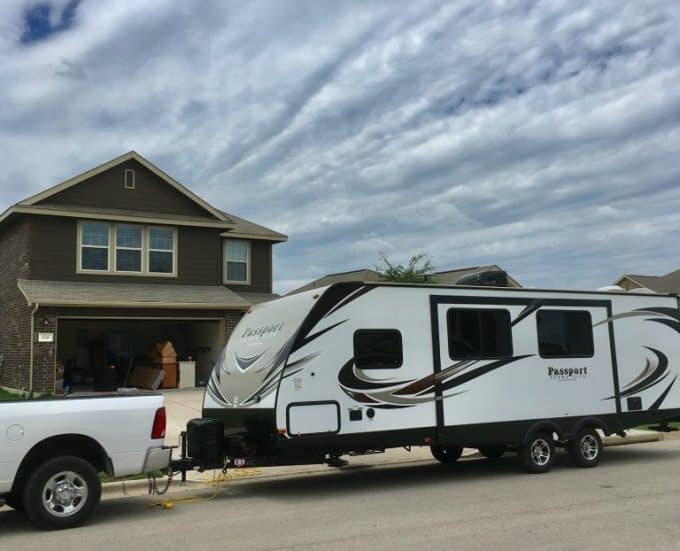
ADDITIONAL PERSPECTIVE
Question 2 also points to the fact that making the smartest financial decisions possible going into this endeavor will help mitigate any damage on the back end.
In other words, buying your truck and/or RV with caution and with an eye toward an eventual exit will likely reduce the amount of financial damage you could potentially experience.
For more on choosing your RV setup wisely, you can review my suggestions that you may need less RV than you think.
“I am an old man and have known a great many troubles, but most of them never happened.”
~Mark Twain
Question 3: What are the more probable outcomes of full-time RV living?
Now that you have really put some flesh on your worst fears and defined your nightmare, it’s time to swing back to the other side of the equation with this question.
We want to look at what is not only possible with this decision but even probable.
- What do you believe you will most likely gain on a mental, emotional and physical level by choosing the full-time RV lifestyle?
- Do you believe you can actually save money living this lifestyle and put yourself in a better financial situation? (Do some honest and rigorous research before answering this one, and read our very honest post about the costs of full-time RVing based on our experience.)
- How would these more likely outcomes impact your life for the good? Rank these positive outcomes on a scale of 1-10.
A little further guidance from Tim on this question to help you round things out:
“How likely is it that you could produce at least a moderately good outcome? Have less intelligent people done this before and pulled it off?”
~Tim Ferriss
If the financial fears and uncertainty about the actual costs of this lifestyle are leading the way for you, I encourage you to check out my 21 tips for living in an RV without going broke.
I offer plenty of practical advice for RVing smartly and avoiding some of the financial pitfalls of the lifestyle. We lived it. I really think you will find it valuable.
Wrap Up Questions #1-3.
These first three questions that we covered, straight from Tim’s own practice, are the “meat and potatoes” of the fear-setting process that he values so highly.
Give them a good chunk of your time and all of your attention, and be as honest with yourself as you possibly can as you answer them.
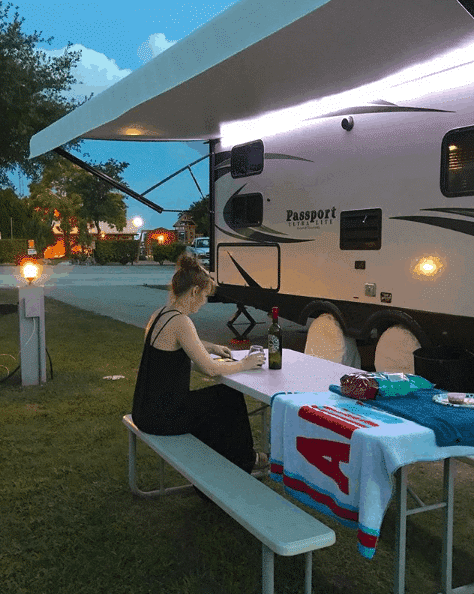
Here is a recap of the first three questions:
- Question 1: What is the absolute worst that could happen if I choose the full-time RV life? What is my “nightmare” scenario?
- Question 2: If things RV Living does not go as planned, what steps could I take to reverse course and/or repair the damage?
- Question 3: What are the more probable outcomes, both internal and external, of this choice to full-time RV?
If you’re a numbers person like me, you will probably be very happy to have your ranking of a possibly negative outcome up against the ranking of a more likely positive outcome.
Related Reading: Top 10 Annoying Things About RV Life
If you have been honest about your situation, these two numbers are crucial to pay attention to. They may just point the way to your best life.
“We suffer more often in imagination than in reality.”
~Seneca
Final Four Questions
Now, when I go through an exercise like this, it doesn’t feel very “real” to me until I have externalized it by sharing it with a trusted relative or friend.
If you are wired similarly, seek someone out to share your results with and welcome their perspective on things as well.
But remember, at the end of the day, your opinion is the only one that truly counts here. Find that true opinion and stick to it regardless of fear, uncertainty or your lack of popularity.
And now let’s wrap up with Tim’s final four questions that build on top of the foundation of these first three:
- Question 4: “If you were fired from your job today, what would you do to get things under financial control?” (Removes the control/decision issue from your hands to shake things up a bit.)
- Question 5: “What are you putting off out of fear?” (Tim’s perspective: “What we fear doing most is usually what we most need to do.”)
- Question 6: “What is it costing you—financially, emotionally, and physically—to postpone action?”
- Question 7: “What are you waiting for?” (Seriously consider the cost of inaction on all fronts of your life.)
“Fear is the pathway to a life half-lived.”
~Anne Frank
Can You Make Progress to Conquering Fears About Full-Time RV Living
Of course, it is my sincere hope that pointing you toward these questions will help you move forward with confidence.
The outcome may be a definitive decision to pursue full-time RVing. Or, it may provide absolute clarity not to hit the road full-time.
The important thing is to take action to move your life forward. You will no longer allow yourself to settle into neutral because of fear and uncertainty.
Please be sure to take a closer look at Tim’s full post on fear-setting. He obviously provides incredible insight into the practice. Much more so than I have.
I hope that having the questions pointed toward the idea of full-time RV living has helped you put things into perspective to clearly see the opportunities and how to approach the big decision.
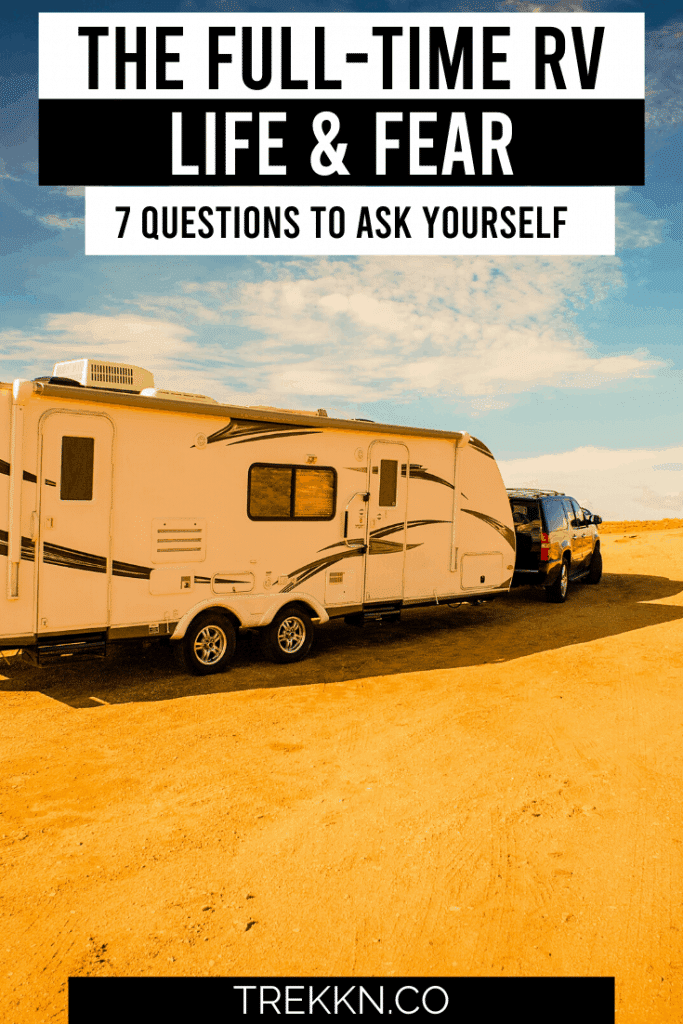
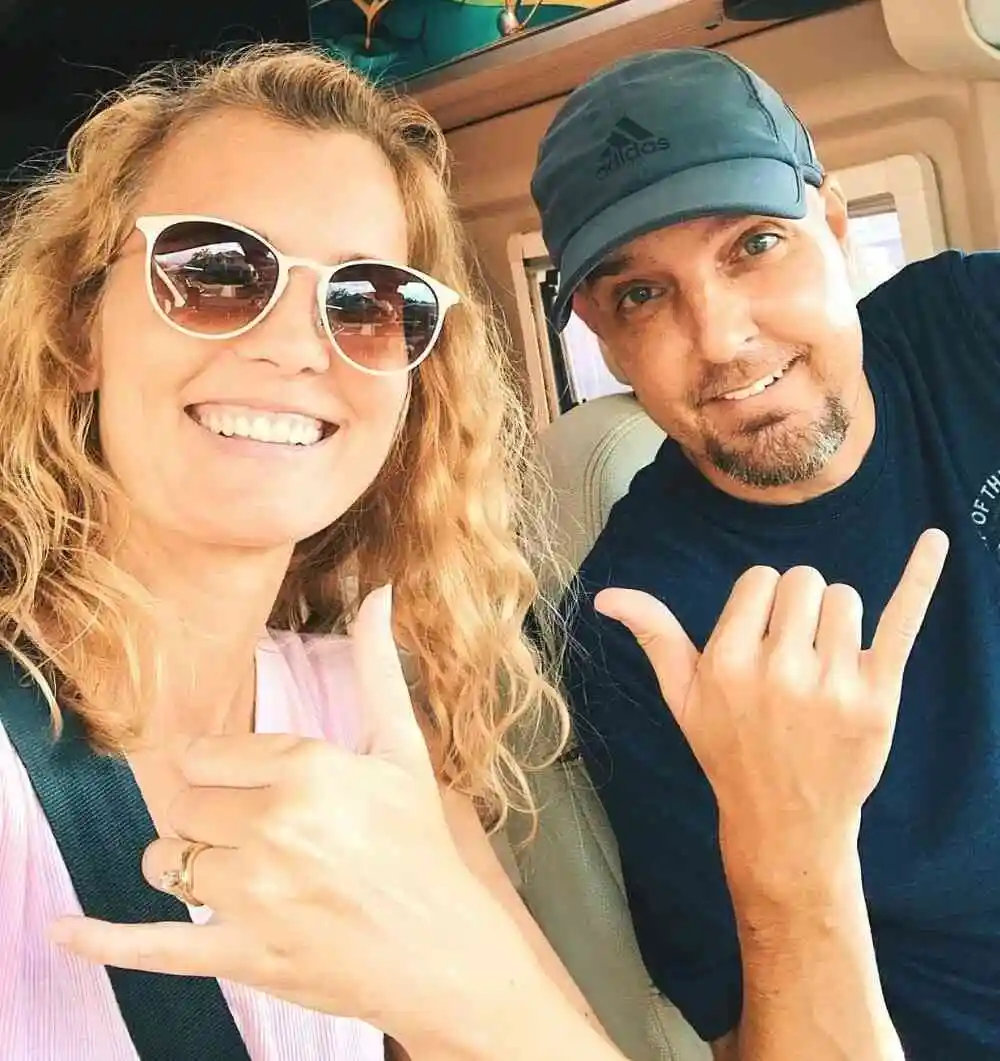
Todd loves a competitive game of table tennis, a breathtaking hike, and exploring new places. He lived and traveled in an RV with his family as they traveled throughout much of the US and parts of Canada. Todd has extensive knowledge about RV travel, safety, and accessories and has shared many of his stories here on TREKKN. When he’s not busy launching and building small businesses, you may find him staring at pictures of Glacier National Park (probably his favorite spot on earth).


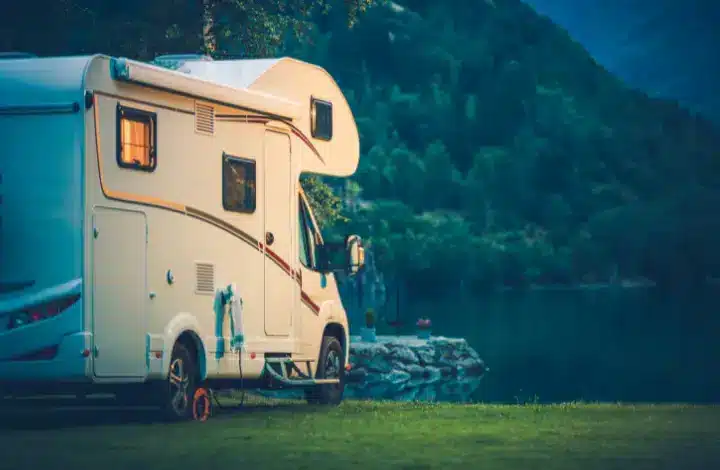
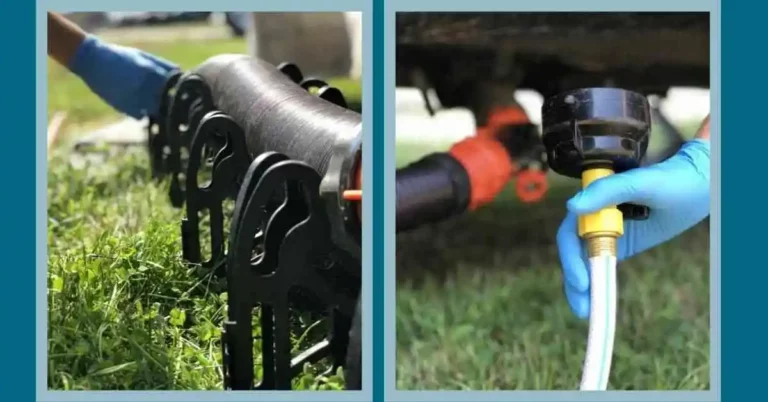
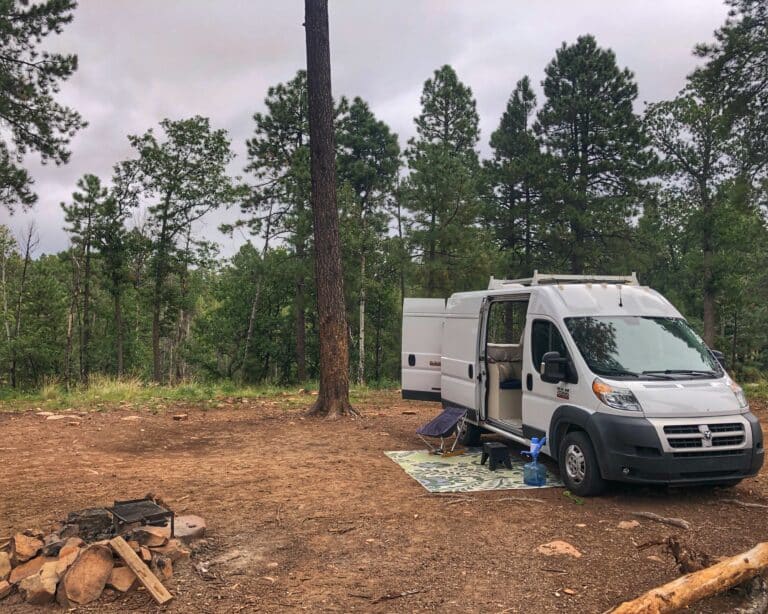
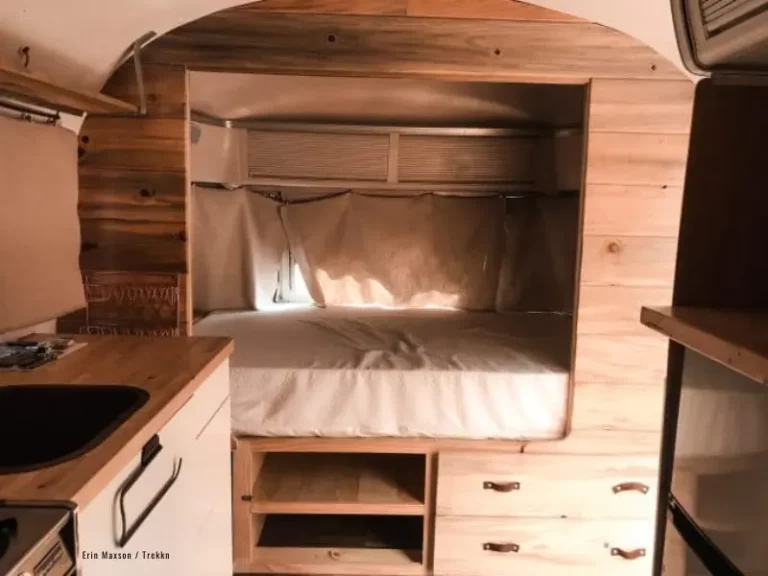
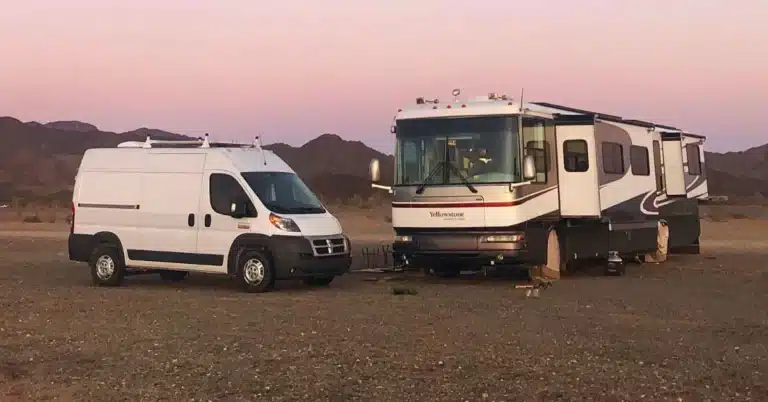
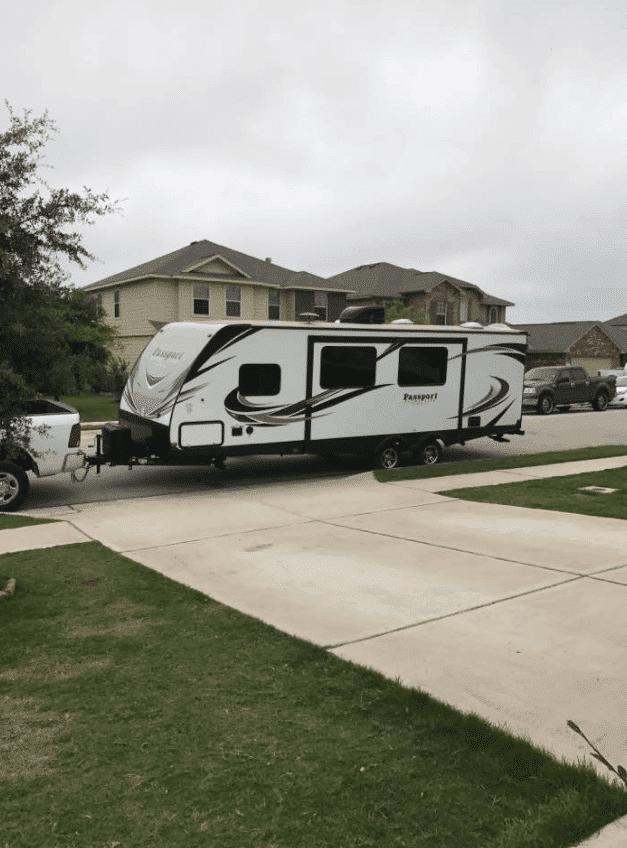

Why did you choose a fifth wheel verses a tricked out, say, sprinter or a class C?
Thanks.
Hi Fred! For a family of 5, the fifth wheel was a better fit than a Sprinter. The Keystone Passport checked off most of our priorities. We share many of the details in this tour.